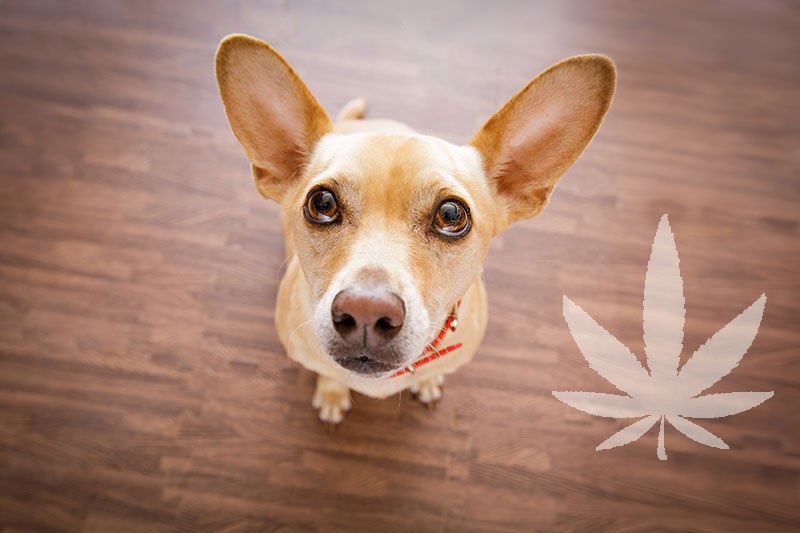

The Bark first started covering veterinary use of cannabis in 2015. For that initial piece, Robert Silver, DVM, MS, CVA, was one of the experts to whom we turned. Over the years, we’ve continued to rely on his insights, and he’s been generous in sharing what he knows.
Over the past few years, changes in the federal Farm Bill made growing hemp, a low THC, high CBD cultivar of cannabis, both possible and profitable. As a result, research has increasingly focused on CBD, the cannabis plant’s second most-prevalent active ingredient (THC, the psychoactive compound, takes first place). Most therapeutic veterinary CBD is derived from hemp.
Earlier this year, Dr. Silver conducted an observational study using a proprietary, broad-spectrum, CBD-nutraceutical blend formulated as a soft chew “dosage-form” treat produced by Okoa Pet. The purpose of the study was to evaluate this particular blend’s impact on canine anxiety levels, assessing the calming effects of cannabinoids on dogs in a real-world setting.
Dogs were recruited from across the country for this study. In the end, 98 dogs were enrolled and their owners gave them the chew on a daily basis for 14 days (the length of time considered sufficient to affect and detect a change in a dog’s behavior). Before and after the study, participants completed a numerically scaled questionnaire. The goal was to assess changes in anxiety and stress-related behaviors during the study period.
GET THE BARK NEWSLETTER IN YOUR INBOX!
Sign up and get the answers to your questions.
The pre-study survey established a baseline for 20 behaviors that typically indicate stress (for example, how a dog reacts when people come to the door, travels in a car, interacts with other dogs, behaves when left alone and so forth). After the dogs had taken the weight-appropriate daily chew for two weeks, their owners completed a second survey, which was used to assess changes in behavior.
This questionnaire-based study demonstrated that anecdotal reports from veterinarians and dog owners about the beneficial effects of CBD on canine anxiety have scientific merit. (For more details, read the white paper, “The Positive Behavioral Impact of a CBD-containing Nutraceutical Formulation on Privately-Owned Dogs.”)
It must also be noted that although the results are positive, observational studies have limitations—primarily, there’s no control group and (in this case) the results rely on the participants’ subjective observations of their dogs’ behavior. However, the fact that a large sample group was used and generated a high statistical significance does strongly suggest that these results reflect the actual effect of the test material.
Financial Disclosure: The study was underwritten by Okoa Pet, a woman-owned company whose primary products are premium hemp soft chews for dogs and cats; Dr. Silver serves as its veterinary science officer.